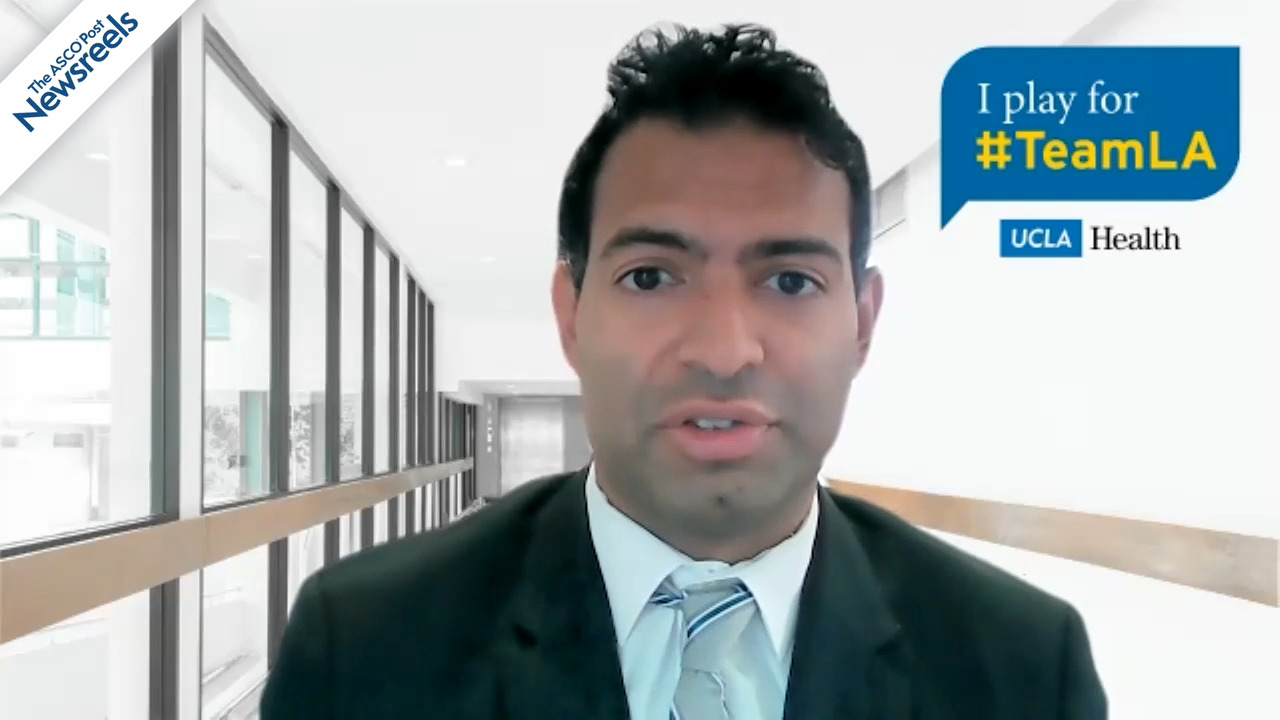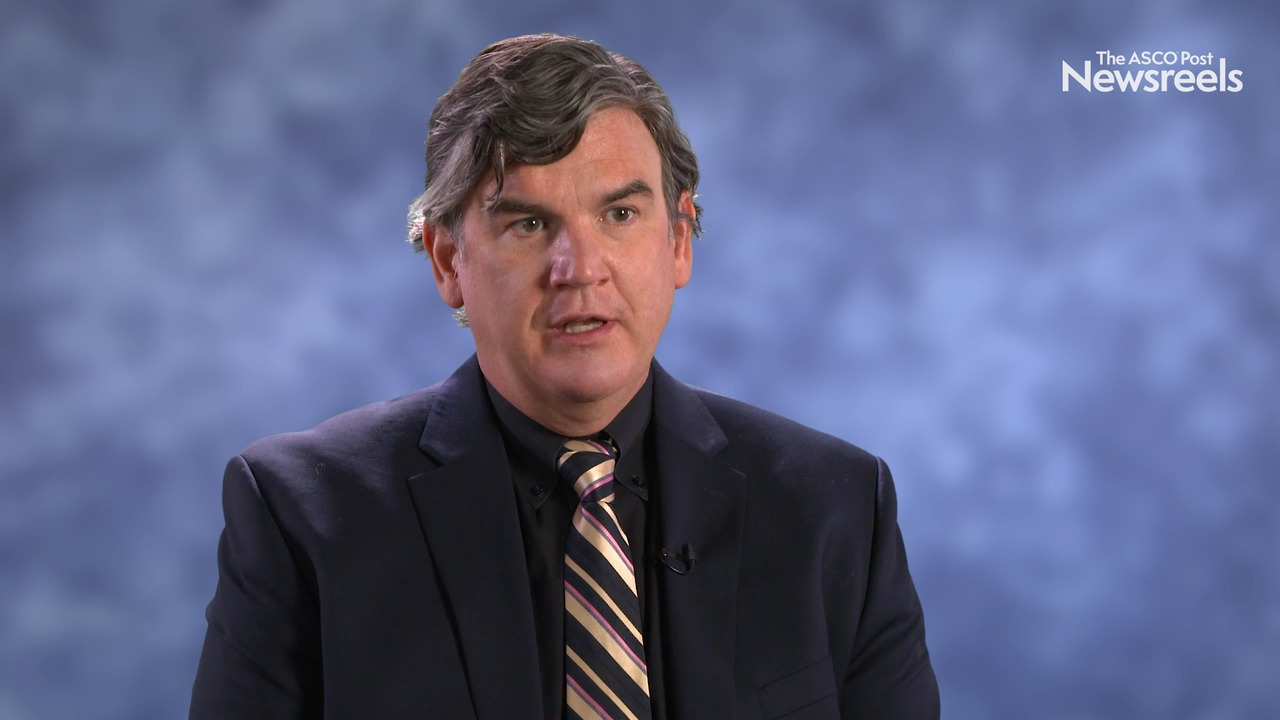Howard M. Sandler, MD, on Prostate Cancer Highlights: An Expert Perspective
2021 ASTRO Annual Meeting
Howard M. Sandler, MD, of Cedars-Sinai Medical Center, discusses whether hypofractionation can be safely employed in the post-prostatectomy setting and the role of short-term hormone therapy in the management of intermediate-risk prostate cancer with radiotherapy.
The ASCO Post Staff
C. Jillian Tsai, MD, PhD, of Memorial Sloan Kettering Cancer Center, discusses results from the first randomized trial of stereotactic body radiation therapy (SBRT) to treat oligoprogressive, metastatic lung and breast cancers. The standard of care for patients with these types of tumors is to switch to a different systemic treatment. Adding local therapy such as SBRT may help treat drug-resistant lesions (Abstract LBA3).
The ASCO Post Staff
Amar U. Kishan, MD, of the University of California, Los Angeles, discusses findings from a meta-analysis of clinical trials in patients with localized prostate cancer. The phase III results suggest that the use of androgen-deprivation therapy (ADT) or prolonged adjuvant ADT with radiotherapy may benefit patients with localized prostate cancer. Further biomarkers are needed to better personalize treatment intensification (Abstract 8).
The ASCO Post Staff
Benjamin Movsas, MD, of the Henry Ford Cancer Center, discusses results from the NRG Oncology/RTOG 0815 study, which explored dose-escalated radiotherapy alone or in combination with short-term hormonal therapy for patients with intermediate-risk prostate cancer. In addition to clinical outcomes, Dr. Movsas discusses patient-reported results in the study that may help patients make informed decisions when choosing between these treatment options (Abstract 4).
The ASCO Post Staff
Matthew Manning, MD, of Cone Health Cancer Center, discusses findings that showed changes to the way cancer care is delivered may help eliminate racial disparities in survival among patients with early-stage lung and breast cancers. Identifying and addressing obstacles that kept patients from finishing radiation treatments for cancer were associated with improved 5-year survival rates for all patients (Abstract 53).
The ASCO Post Staff
Karen M. Winkfield, MD, PhD, of Vanderbilt University Medical Center, who co-chaired a session (PS 02) on digital health, summarizes the talks, which included ways to reduce disparities with digital innovations and the importance of patient input, especially in the form of patient-reported outcomes and experience measures. Advancing digital health, which the FDA defines as including health information technology, telemedicine, and personalized medicine, can potentially improve cancer care.





